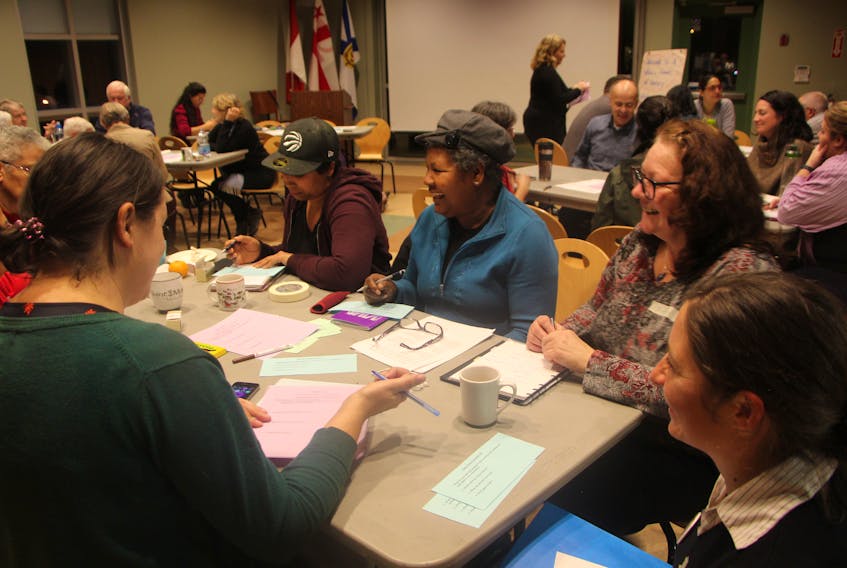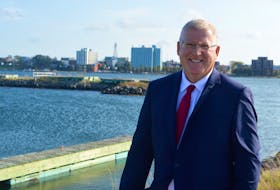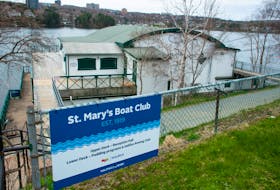ANTIGONISH, N.S. — The Antigonish Poverty Reduction Coalition (APRC) is preparing its next step in the complicated, nuanced process of fighting poverty in Antigonish and the surrounding rural communities.
Over the course of 2018, the APRC held six People’s School on Poverty sessions and identified causes and factors that contribute to poverty in the Antigonish area.
“We put this back to the community so that everyone could be involved in individual conversations,” Wyanne Sandler, a member of the APRC, said.
The APRC recently released a document outlining the findings of all of the People’s School on Poverty sessions it hosted.
APRC member Laura Pickersgill noted the entire process was a conversation meant to raise awareness, where people can share their stories.
“The groups (at the sessions) were mixed. There were some people who experienced poverty themselves, and others in the conversation who were interested. for other reasons,” Pickersgill said.
Pickersgill said she thought the sessions were important because they helped people deal with biases, myths and assumptions made about poverty.
These sessions were conducted in four distinct Antigonish County communities; Upper big Tracadie, Antigonish, Paqtnkek Mi’kmaw Nation, and Pomquet.
Themes
According to information released from the APRC, there were several themes that emerged from the People’s School sessions. These included housing, transportation, food security, income security and policy, communication, culture and socialization.
“We’re planning to start sharing it with our elected representatives and policy makers,” Sandler said. “We’ve identified some of the proposed solutions and then we’re taking it to the community and seeing where we can translate some of that into action.”
The Antigonish Poverty Reduction Coalition (APRC) is preparing its next step in the complicated, nuanced process of fighting poverty in Antigonish and the surrounding rural communities.
Over the course of 2018, the APRC held six People’s School on Poverty sessions and identified causes and factors that contribute to poverty in the Antigonish area.
“We put this back to the community so that everyone could be involved in individual conversations,” Wyanne Sandler, a member of the APRC, said.
The APRC recently released a document outlining the findings of all of the People’s School on Poverty sessions it hosted.
APRC member Laura Pickersgill noted the entire process was a conversation meant to raise awareness, where people can share their stories.
“The groups (at the sessions) were mixed. There were some people who experienced poverty themselves, and others in the conversation who were interested. for other reasons,” Pickersgill said.
Pickersgill said she thought the sessions were important because they helped people deal with biases, myths and assumptions made about poverty.
These sessions were conducted in four distinct Antigonish County communities; Upper big Tracadie, Antigonish, Paqtnkek Mi’kmaw Nation, and Pomquet.
Work in progress
Sandler described the work that remains to be done to address poverty in the broader community as “an ongoing process.”
“I think there is growing awareness about the prevalence of poverty in our community, but I think there’s more work to do,” Sandler said.
One particular wrinkle in the process is the fact that in rural communities, poverty can often be invisible.
“People don’t necessarily recognize what’s happening in their own community,” Sandler said.
In terms of participation in the APRC, Sandler said there are “ebbs and flows.” One reason the APRC conducted its People’s School sessions was to revitalize the group, engage with new people and “bring in new voices and energy” to the effort to raise awareness of, and combat poverty.
Reciprocal factors
None of the factors that contribute to poverty featured in the People’s School on Poverty’s findings are isolated.
Both Sandler and Pickersgill stressed the abundant overlap between the many factors that put and keep people in poverty.
This overlap means that dealing with poverty in Antigonish and the surrounding communities can be a multifaceted, complicated process.
“Some things are very much about addressing the short-term and immediate issues. The harder parts to deal with are the root causes, such as racism, colonialism, patriarchy and capitalism,” Sandler said.
“People are starting to realize that it goes deeper, and some of it is looking at what policy changes are needed to address the problem.”
Recommendations
In addition to findings from the People’s School events it hosted, the APRC analyzed those results and come up with a series of recommendations on how to address poverty in the region.
The recommendations varied from community to community, and across a number of the dimensions of poverty. They entailed an assortment of steps to help people get their needs met – whether that be reconnecting with traditional practices in First Nations communities, or even just improving access to public transportation in town.
Those recommendations are the basis from which the APRC’s plans will move forward in addressing poverty in the Antigonish area.
“Everyone is involved when the culture changes. We also provided recommendations on how to provide respectful and inclusive service work for anyone who does service work with people who experience poverty,” Pickersgill said.
“Whether it be non-profit, or government, or religious, we gave some suggestions because they are often the people who have the first-hand impact. For folks who are experiencing shame or stigma from people supposed to be helping them exacerbates the situation.”
Ending stigmas
In addition to there often being a lack of greater community awareness of poverty, Sandler noted that often, people living with it themselves are compelled to keep it under their hat because of the shame and stigma associated with it.
One of the mandates of the APRC and the People’s School on Poverty is to address the stigmas and stereotypes associated with those living with poverty.
“Those unhelpful, untrue stereotypes, like how people assume it’s somehow around other people’s choices, and how they make bad decisions or are just not working hard enough – these ideas that people need to pull themselves up by the bootstraps, ignores the ways in which policies and situations really keep people in poverty,” Sandler said.
Sandler said poverty is the result of much larger equalities and stressed the importance of recognizing that fact and getting away from judgements.
“We can’t really know what someone’s situation and experiences are, and those are the factors that have led them to a particular place,” Sandler said. “When we meet people where they are, and recognize the many barriers they face, judgment and shame help deepen those barriers to people actually being able to access the supports and services they need to change that situation.”
Background and future plans
The People’s School is a branch of the Antigonish Movement, an adult education and educational development movement that started in Eastern Nova Scotia.
Sandler noted the People’s School sessions were the APRC picking up where it left off, with its previous five-year action plan to address poverty in Antigonish town and county.
“We’re past that window now, and we’re interested in going back to the community and talking about what we’ve done, looking at what still needs to be addressed and how we can go forward,” Sandler said.
That going forward, she noted, entails recognizing and drawing on knowledge from the community.
“We’re still in that process, taking what has come together from those sessions, and thinking about what’s the best action plan here,” Sandler said.
Sandler described the work that remains to be done to address poverty in the broader community as “an ongoing process.”
“I think there is growing awareness about the prevalence of poverty in our community, but I think there’s more work to do,” Sandler said.
One particular wrinkle in the process is the fact that in rural communities, poverty can often be invisible.
“People don’t necessarily recognize what’s happening in their own community,” Sandler said.
In terms of participation in the APRC, Sandler said there are “ebbs and flows.” One reason the APRC conducted its People’s School sessions was to revitalize the group, engage with new people and “bring in new voices and energy” to the effort to raise awareness of, and combat poverty.









